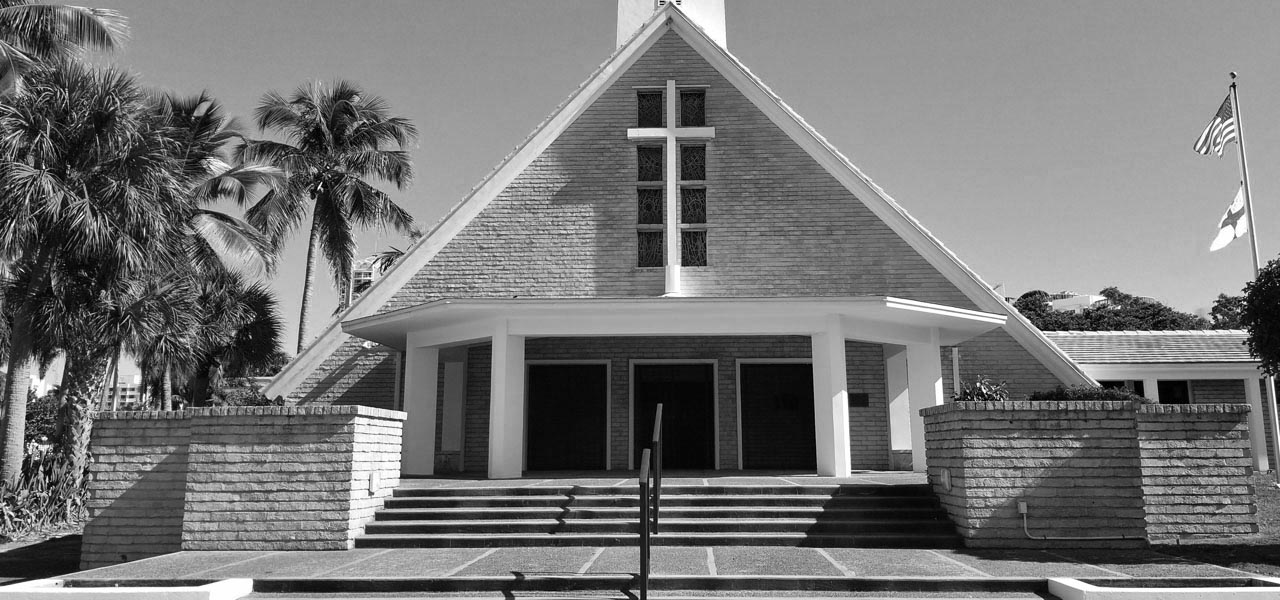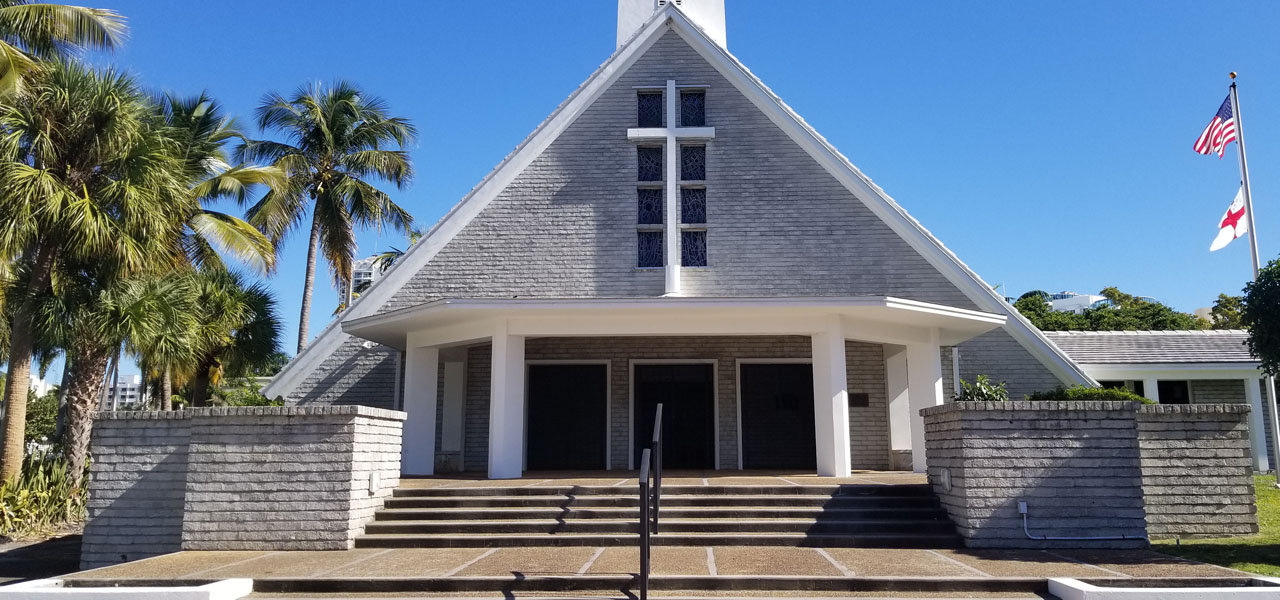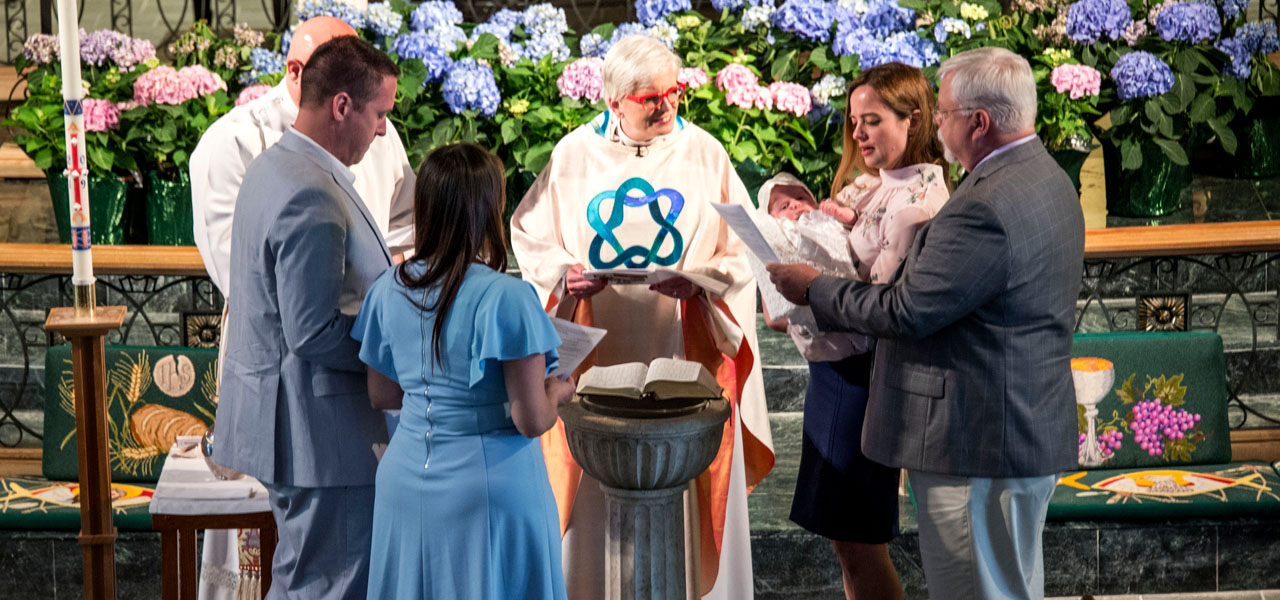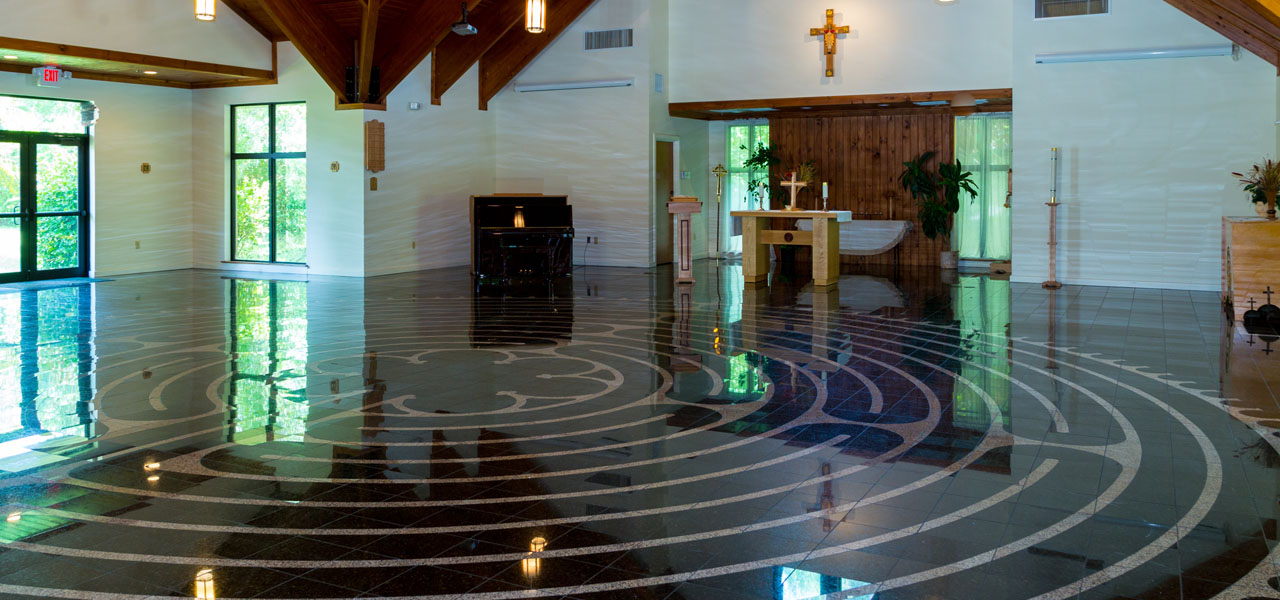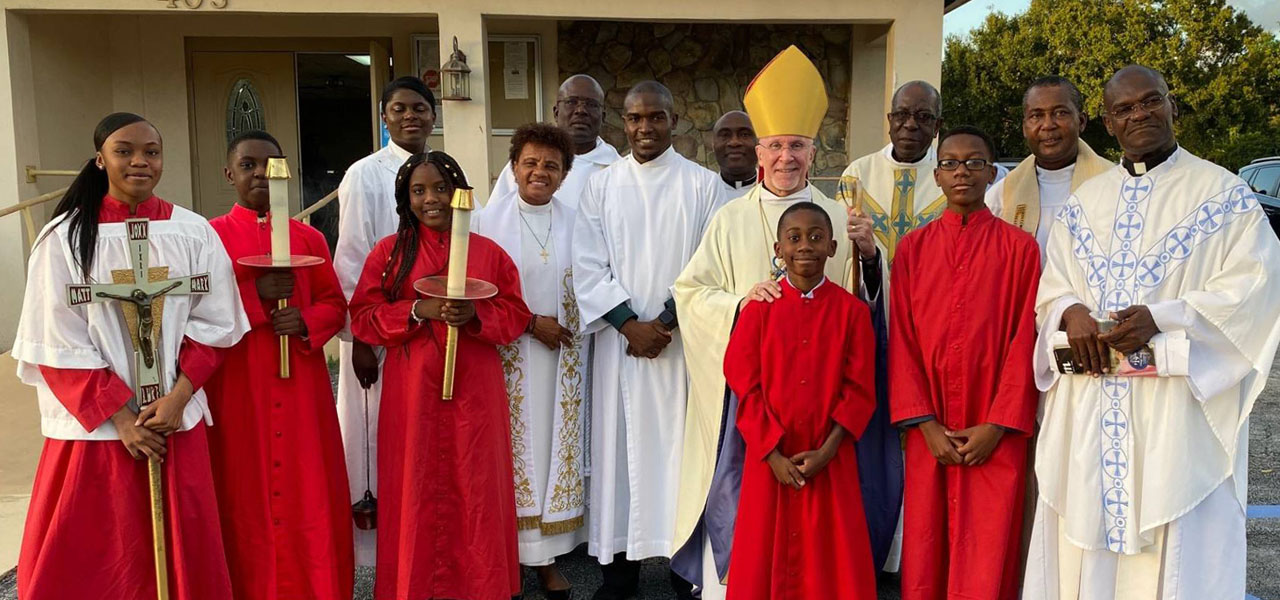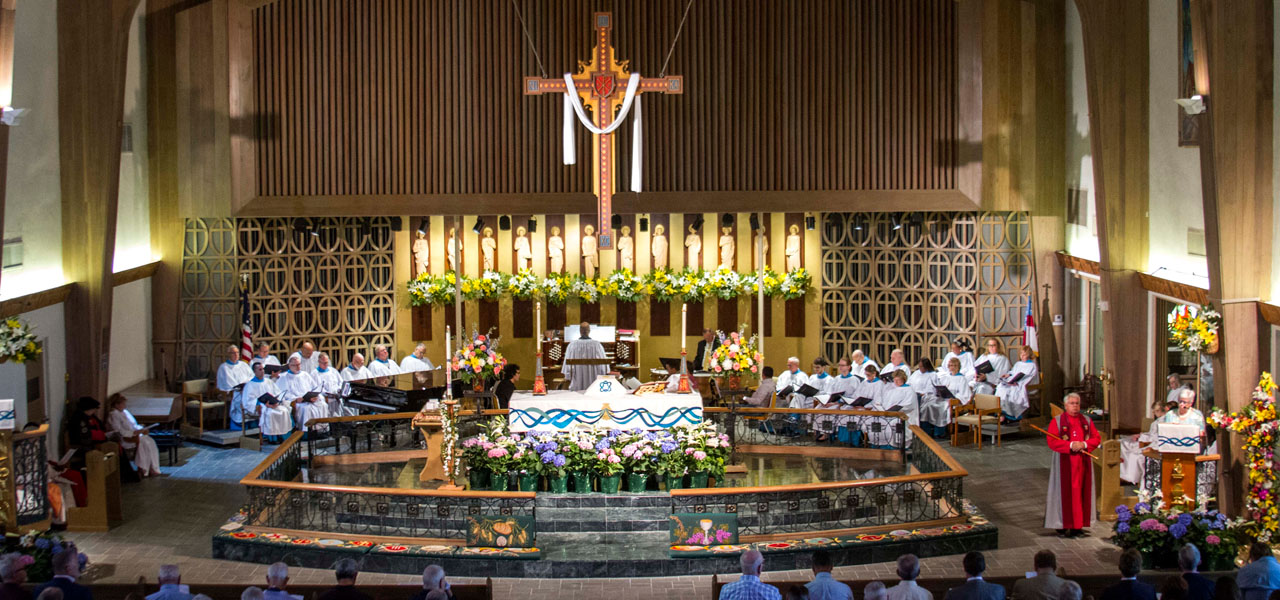Rev. Dr. Robyn M. Neville, Ph.D.
Director of the Center for Christian Formation and Leadership
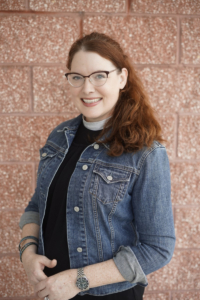 The Rev. Dr. Robyn M. Neville, Ph.D., formerly a professor of church history at General Theological Seminary in New York City, has been a priest since 2003. After earning a BA with honors in religion at the College of William and Mary in Virginia, Robyn studied at Virginia Theological Seminary, where she earned the MDiv with honors in church history, and Harvard Divinity School, where she was awarded the ThM with special research concentrations in medieval Irish Studies, medieval Christian spirituality, and psychoanalytic theory. Her doctoral research work in the Graduate Division of Religion at Emory University focused on medieval Irish church history and gender, and she has won several research awards, including a grant from the National Endowment of the Humanities to study medieval Jewish-Christian relations at Oxford University in England. Her secondary research interests focus on the pastoral formation of leaders for today’s church, and she has published in the fields of Anglican studies, spirituality studies and theological education.
The Rev. Dr. Robyn M. Neville, Ph.D., formerly a professor of church history at General Theological Seminary in New York City, has been a priest since 2003. After earning a BA with honors in religion at the College of William and Mary in Virginia, Robyn studied at Virginia Theological Seminary, where she earned the MDiv with honors in church history, and Harvard Divinity School, where she was awarded the ThM with special research concentrations in medieval Irish Studies, medieval Christian spirituality, and psychoanalytic theory. Her doctoral research work in the Graduate Division of Religion at Emory University focused on medieval Irish church history and gender, and she has won several research awards, including a grant from the National Endowment of the Humanities to study medieval Jewish-Christian relations at Oxford University in England. Her secondary research interests focus on the pastoral formation of leaders for today’s church, and she has published in the fields of Anglican studies, spirituality studies and theological education.
Since being ordained to the priesthood, Robyn has served as an Assistant Rector, a Pastoral Associate for Christian Formation, and as an Assisting Priest in parishes in Georgia, Massachusetts, and Virginia. She has also worked as a hospice chaplain, school chaplain, and youth minister. Robyn served as the elected President of the Historical Society of the Episcopal Church from 2016-2022, and as a board member since 2012. As the newly-elected Second Vice President of the Historical Society, Robyn works with an editorial board to produce the quarterly academic journal, Anglican and Episcopal History. She has also served as the co-chair of the Women’s Caucus of the Southeastern Commission for the Study of Religion, an academic professional society. She has taught church history and medieval spirituality at the graduate level at Emory University, at the Candler School of Theology, at Virginia Theological Seminary, at General Theological Seminary, and at the Sewanee School of Theology. She currently serves on peer review committees for two academic journals.
Alongside leading scholars in the fields of church history, liturgy, and Celtic studies, Robyn has two articles on the Eucharist in medieval Irish narrative in the anthology, Treasures of Irish Christianity: People and Places, Images and Texts. Her chapter on the history and development of the Anglican Church of Ireland is included in the Wiley-Blackwell Companion to the Anglican Communion.
Jill L. Baker, Ph.D.
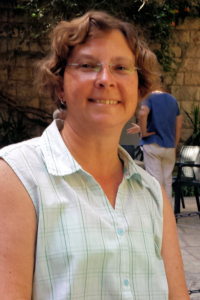 Jill is an Independent Researcher in Ancient Near Eastern Archaeology. She holds a Ph.D. from Brown University, Providence, Rhode Island, an MA from Gordon-Conwell Theological Seminary, Hamilton Massachusetts, and BA in Biblical Studies from Gordon College, Wenham, Massachusetts. Jill has taught as a Faculty Fellow (adjunct) in the Honors College at Florida International University, Miami, Florida, as an adjunct at the University of Miami in the Religious Studies Department, and has held fellowships at the W. F. Albright Institute of Archaeological Research in Jerusalem, Israel.
Jill is an Independent Researcher in Ancient Near Eastern Archaeology. She holds a Ph.D. from Brown University, Providence, Rhode Island, an MA from Gordon-Conwell Theological Seminary, Hamilton Massachusetts, and BA in Biblical Studies from Gordon College, Wenham, Massachusetts. Jill has taught as a Faculty Fellow (adjunct) in the Honors College at Florida International University, Miami, Florida, as an adjunct at the University of Miami in the Religious Studies Department, and has held fellowships at the W. F. Albright Institute of Archaeological Research in Jerusalem, Israel.
Her excavation experience includes Harvard University’s Leon Levy Expedition to Ashkelon, Gesher Excavations, and Tel Zahara Excavation. Jill’s post-excavation experience includes the Tel Miqne Publication Project, Jerusalem, Israel, wherein her on-going contribution focuses on the quantification and statistical analysis of the ceramics. From 2010 to the present, Jill has been the Executive Director of Archaeological Horizons, Inc., a nonprofit organization created to facilitate archaeological research. She directed the excavations of the Greensboro Blockhouse Project in Greensboro, Vermont. Jill has published three books, The Funeral Kit: Mortuary Practices in the Archaeological Record (2012. Left Coast Press/Routledge), The Greensboro Blockhouse Project: An Historical and Archaeological Investigation in Greensboro, Vermont, Co-authored with Patricia L. Haslam (2017. IndieGo Publications), and Technology of the Ancient Near East from the Neolithic to the Early Roman Periods (2019. Routledge/Taylor and Francis Group).
Dr. Joshua Davis, Ph.D.
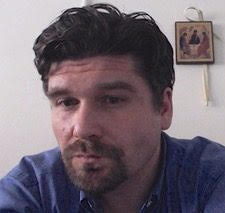
Deirdre Good, Th.D.
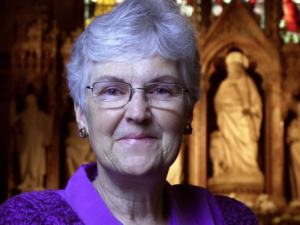 Deirdre Good was born in Kenya to missionary parents. She grew up under mosquito nets, with outdoor plumbing and visits to the Indian Ocean every three months. It was a shock to fly to the UK and discover fog, indoor plumbing, and eiderdowns. She presently lives in Maine in the USA with snow, fog, ice, indoor plumbing, and a supply of marmite. She is a faculty member of the Stevenson School of Ministry for the Diocese of Central PA and is a lay preacher in the Diocese of Maine.
Deirdre Good was born in Kenya to missionary parents. She grew up under mosquito nets, with outdoor plumbing and visits to the Indian Ocean every three months. It was a shock to fly to the UK and discover fog, indoor plumbing, and eiderdowns. She presently lives in Maine in the USA with snow, fog, ice, indoor plumbing, and a supply of marmite. She is a faculty member of the Stevenson School of Ministry for the Diocese of Central PA and is a lay preacher in the Diocese of Maine.
The Rev. Canon John H. Tidy
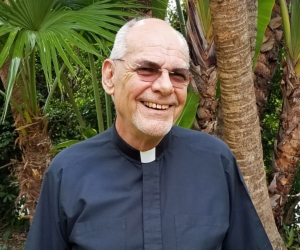
John’s vocation to the ordained ministry was nurtured and formed in the Church of England. He earned a theological degree from King’s College, London, and was ordained almost fifty years ago in the magnificent splendor of Durham Cathedral. John served several parishes in the Diocese of Durham and Bradford in West Yorkshire before being appointed Dean of Saint George’s Cathedral in Jerusalem in 1992, serving there for five years. In 1997, John returned to England to be the Vicar of a large parish in the southwestern suburbs of London. In 2004 John returned to Jerusalem to serve as the interim Dean of Saint George’s College, where his focus was on teaching the spirituality of the desert, while also serving again at the Cathedral. In 2006, John accepted a call to serve as rector of All Souls’ Miami Beach, and was subsequently appointed Canon to the Ordinary in 2017. In the fall of 2020, John retired and now lives in northeast Florida with Dr. Jill L. Baker, his wife, and their black flat coat retriever, Murphy, and serves as a Priest Associate of Saint Peter’s, Fernandina Beach.
John brings a breadth of experience and a deep appreciation of the Anglican Communion and its spirituality as it is expressed and lived out in three very different provinces of the Communion, each with their distinctive traditions and the cultures that inform them. Throughout his ministry John has been involved in the work of spiritual direction and continues to serve as a guide, mentor and counsellor to clergy and laity alike.

